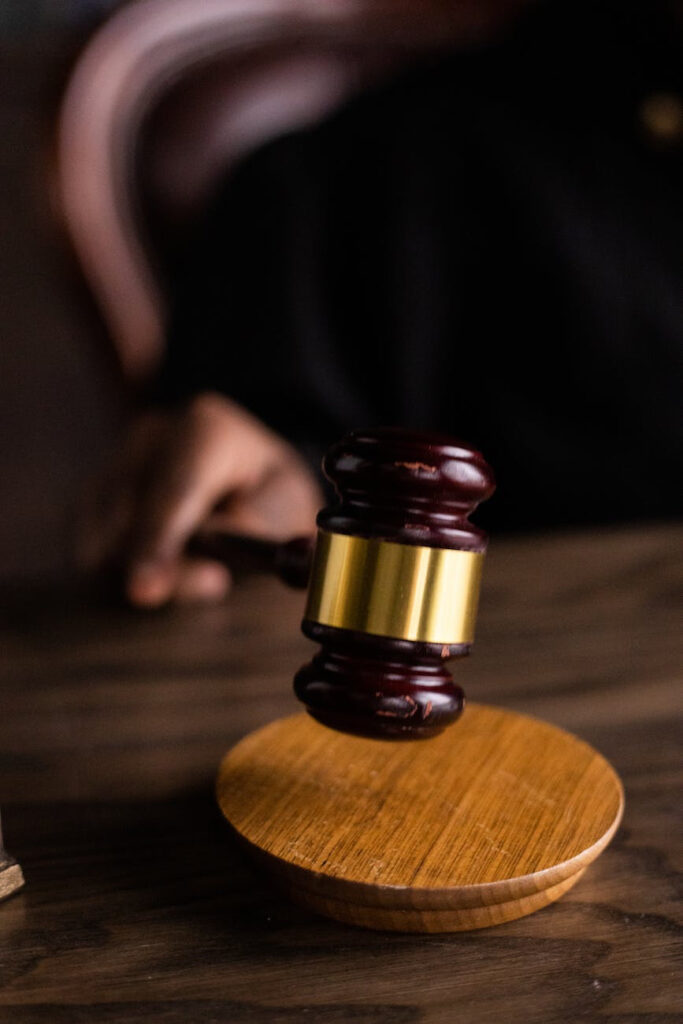I used to say that there was a murder in my house almost every day. For a while my wife and I were on a ‘Law and Order’ kick starting back in the 90s. Each episode there was a crime often, usually a murder, and the investigators and prosecutors would work together to attempt to bring justice to the one who performed the evil act. For those who remember the original show it always began with a ‘bong bong’, a symbolic sound of the judge’s gavel.

In my repentance, when faced with my own sin, am I truly accepting of the judgment deserved? Or in my desire to escape punishment – the shame and the pain – do I quickly move to groveling and excuses?
The work of the Spirit is to dig deep within the soil of my soul and unearth the roots of sin, bitterness, fear, jealousy, and shame. This is not a pleasant experience, it is painful and embarrassing. However, if I am too quick to start the ‘I am sorry, have mercy on me’ in order to avoid the deep work, those roots still have position in my life and the sin will emerge again.
The work of confession is intimately tied to deep repentance. This not mere lip service but true confession, the admission of sin, guilt, and verbal acknowledgment of the shame. Do not rush this. Do not circumvent this. Do not stop the deep work of uprooting the sin that has infiltrated.
But also do not live there. Once the introspection and confession and commitment to turn away has been completed look to God again. And you will find that He has transformed the judgment seat into a seat of mercy. His forgiveness will lift you up and heal your wounds.
Tradition teaches that when we blow the shofar on Rosh Hashanah, God our King, who is sitting on His throne of judgment, gets up and takes the seat of compassion. With just one piercing sound, the day is transformed from a day of stern judgment into a day of merciful compassion. Why?
These days, at the start of a trial, the judge bangs his gavel in order to bring the court to order. But in biblical times, a Jewish trial began with the sounding of the shofar. So when we blow the shofar, it is as though we are willingly starting our trial. We initiate the judgment. It is as if we are saying to God, “hand me the ticket – give me my penalty! I know that I am guilty.”
We recognize that we have done things wrong and we accept our verdict, acknowledging that it is for our own good. In response, God switches his mode from judgment to one of compassion.
The psalmist writes: “Blessed are those who have learned to acclaim you . . .” (Psalm 89:15). The Hebrew for “to acclaim you” in this verse is teruah. As you may recall, teruah is also the name of the nine-note shofar blast. So the Jewish sages interpret this verse to mean: “Blessed are those who know the secret of the shofar blast.”
The secret of the shofar blast is that it unleashes God’s mercy.
Jewish tradition teaches “when there is judgment below, there is no need for judgment above.” In other words, when we are able to take responsibility for our shortcomings on our own, God doesn’t have to correct our behavior for us. Instead, He hands out His love and mercy.
https://www.bible.com/en/reading-plans/12652
“But because of his great love for us, God, who is rich in mercy, made us alive with Christ even when we were dead in transgressions—it is by grace you have been saved. And God raised us up with Christ and seated us with him in the heavenly realms in Christ Jesus, in order that in the coming ages he might show the incomparable riches of his grace, expressed in his kindness to us in Christ Jesus.”
Ephesians 2:4-7 NIV
https://bible.com/bible/111/eph.2.4-7.NIV
